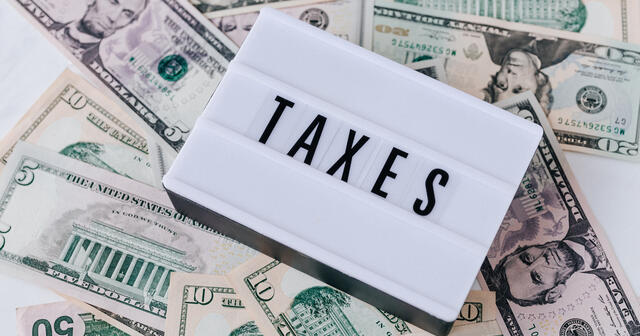

 By Adam Stacey
By Adam Stacey
As I filed my taxes this year, I engaged in a mental exercise to calculate the true effect of taxes on my paycheck. I would not encourage anyone to follow suit; it’s just too depressing.
First, I looked at my paycheck and took out the payroll taxes. Then I looked at my monthly bills and pulled out the taxes on my cellphone and electricity bills. I totaled up how much I paid for gasoline and broke down how much of that tally was reserved for gas taxes and sales taxes. I did a good estimate of my purchases that were subject to the sales tax, including household supplies, clothes and entertainment. Finally, I estimated the sales tax for dining out for the year.
Here's what I found.
Coming in at No. 1 for taxes was the federal income tax, accounting for 8.3% of my total household income. The next highest bite of my wages was the Social Security tax, at 6.5%. The taxes I pay on my house are the next biggest chunk, at 4.7% of my annual income. That amount breaks down to about 0.9% for township government (mostly police and fire protection) and 0.8% for county government (the sheriffs, prosecutors and courts with whom I hope never to interact). Another 2.8% of my property taxes went to educational institutions, ranging from the local school district to the regional school district to the community college. (Roughly 80% of Michigan residents live in a community college district.)
The state of Michigan took another 4.05% bite. This year, the tax will go up to 4.25% because the courts have ruled that a plain reading of an income tax cut law isn’t as simple as you’d think. The effective tax rate for the state was about 3.6% since I was allowed to deduct $10,800 from my adjusted gross income just because my wife and I were breathing. (Thanks!)
Medicare was the next biggest slice of my paycheck, coming in at 1.5% of my income. I work in the city of Lansing, and its cut came out to be 0.3%. That was about the same percentage as I paid in gas taxes at the pump last year. Taxes for 911 emergency services on my cellphone and home amounted to roughly 0.1%, which is probably the best value you’re going to find: a vital government service you hope you never need. Finally, sales tax was around 1.0% of my remaining spending last year. What was surprising in this exercise was finding out I paid sales tax on things I didn’t expect, such as my electricity and heating bill.
I’m not even counting the business taxes I pay indirectly when companies pass on their costs by making up prices on goods and services. I’m also not calculating other hidden taxes that you and I pay every day through federal surcharges on your cellphone bill or your energy usage.
Altogether, my tax rate was about 26.5%. Medieval serfs were taxed at one-third the value of their land, so we have made some progress over the centuries. Paying taxes is the price we pay to live in the civilization we’ve created. But it seems every day I see state government write checks to businesses that generate none of the jobs they promised. I see nearly a billion dollars in pork-barrel spending, allocated in the dead of night. There’s also the grant given out to a nonprofit group that used the money to buy a $4,500 coffee maker.
No government in the world can collect all its taxes by force. All governments depend on some level of cooperation on the part of their citizens. But when our state government doesn’t do its part to ensure our tax dollars are spent wisely and efficiently, how much harder will it be for our citizens to perform their civic duty each year?
Permission to reprint this blog post in whole or in part is hereby granted, provided that the author (or authors) and the Mackinac Center for Public Policy are properly cited.
Get insightful commentary and the most reliable research on Michigan issues sent straight to your inbox.


The Mackinac Center for Public Policy is a nonprofit research and educational institute that advances the principles of free markets and limited government. Through our research and education programs, we challenge government overreach and advocate for a free-market approach to public policy that frees people to realize their potential and dreams.
Please consider contributing to our work to advance a freer and more prosperous state.

Donate | About | Blog | Pressroom | Publications | Careers | Site Map | Email Signup | Contact